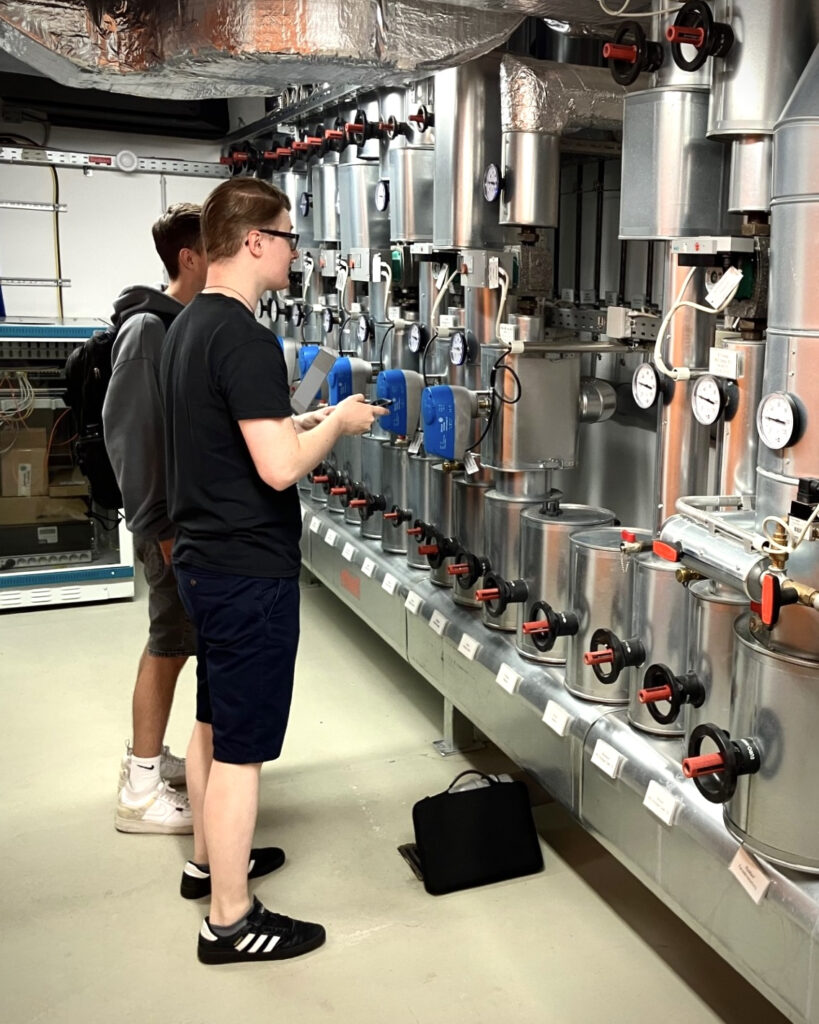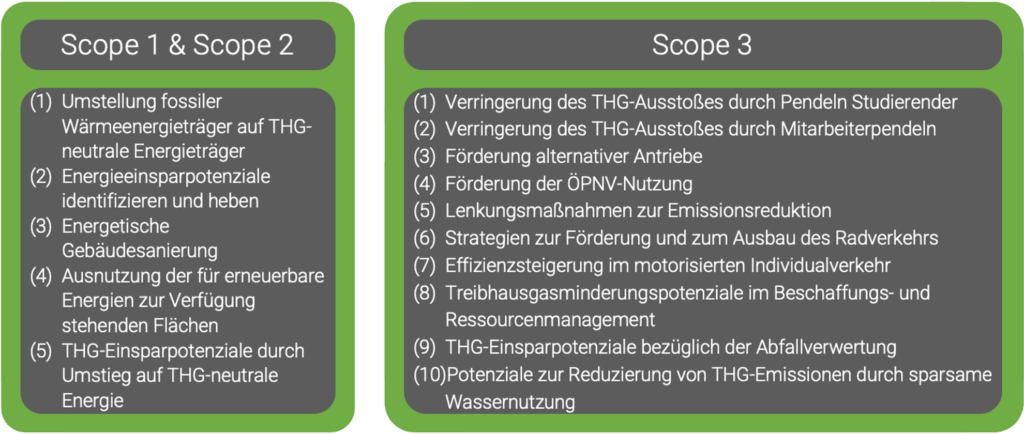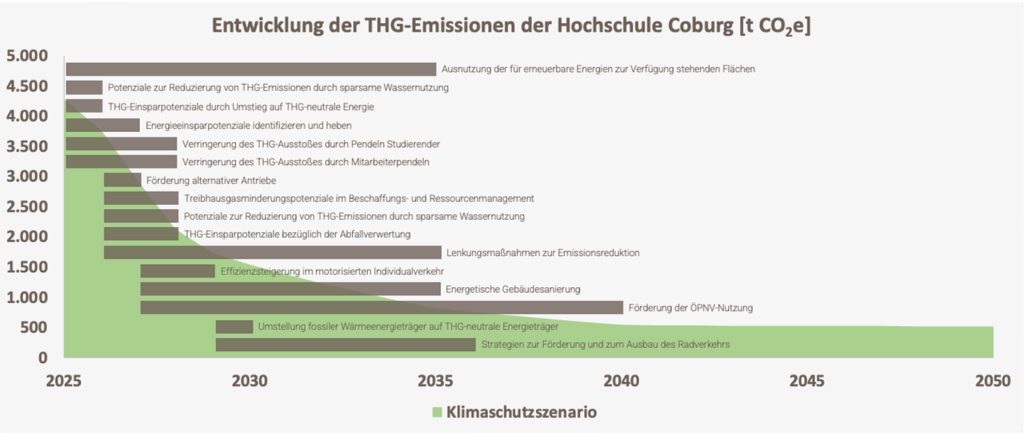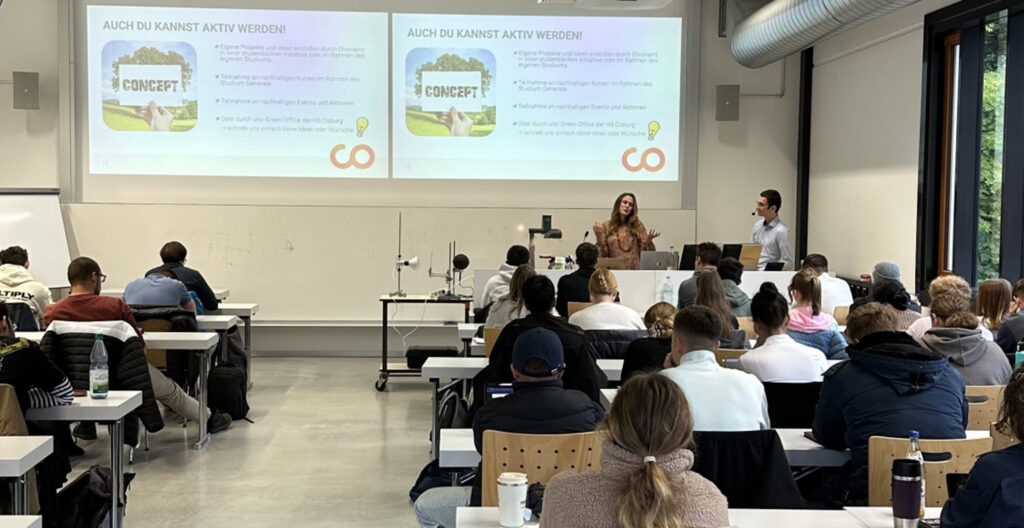Climate protection management
Our goal
As a university, we have set ourselves the goal of developing and implementing a comprehensive climate protection concept.
This concept should serve as a strategic decision-making basis and planning aid for our future climate protection activities and permanently anchor climate protection as a central task in all areas of our university.
In order to achieve this goal, we are committed to defining clear responsibilities and competencies in both university policy and administration.
We also attach great importance to actively involving our students, employees and external stakeholders in the process from the outset and promoting broad participation and cooperation.
Our climate protection concept aims to analyze and utilize the technical and economic possibilities for reducing greenhouse gas emissions.
We are committed to defining short-term (up to three years), medium-term (three to seven years) and long-term (more than seven years) targets and measures that identify concrete steps to reduce emissions.
Through this structured approach, we strive to make a significant contribution to climate protection and position our university as a pioneer in this important social issue.
Current projects:
Why EVERYONE must lead the fight against the looming climate catastrophe
Im Rahmen des Projekts „KSI: KlimaCo+ – Integriertes Klimaschutzkonzept und Klimaschutzmanagement für die Hochschule Coburg“ wurde eine umfassende Treibhausgasbilanz erstellt. Es wurden alle Standorte, die dem Control Approach unterliegen, sondiert und die Treibhausgasemissionen bilanziert. Dies gibt einen genauen Aufschluss darüber, in welchen Bereichen und Liegenschaften wie viele und welche Emissionen entstanden sind. Die Ergebnisse werden im Klimaschutzkonzept der Hochschule Coburg veröffentlicht werden.
„Ein Potenzial bezeichnet die vorhandenen, aber möglicherweise nicht vollständig entwickelten oder genutzten Fähigkeiten, Möglichkeiten oder Ressourcen eines Systems, einer Person oder einer Institution.“ Anhand dieser Definition haben wir uns auf die Suche nach Potenzialen der Hochschule Coburg begeben, die eine Senkung der Treibhausgasemissionen ermöglichen können. Diese Potenziale zeigen die grundsätzliche Machbarkeit auf, stellen jedoch noch keine konkreten Maßnahmen dar. Letztere wollen wir gemeinsam mit der gesamten Hochschule erarbeiten.
Anhand der erörterten Potenziale wurden ein Referenzszenario und ein Klimaschutzszenario entwickelt. Das Klimaschutzszenario ist jenes, das die CO₂-Reduktion darstellt, sofern alle zur Verfügung stehenden Potenziale genutzt werden. Das Referenzszenario hingegen zeigt auf, welchen Emissionspfad wir einschlagen, sollten keine weiteren Maßnahmen mehr ergriffen werden.


Contact us
Climate protection manager






